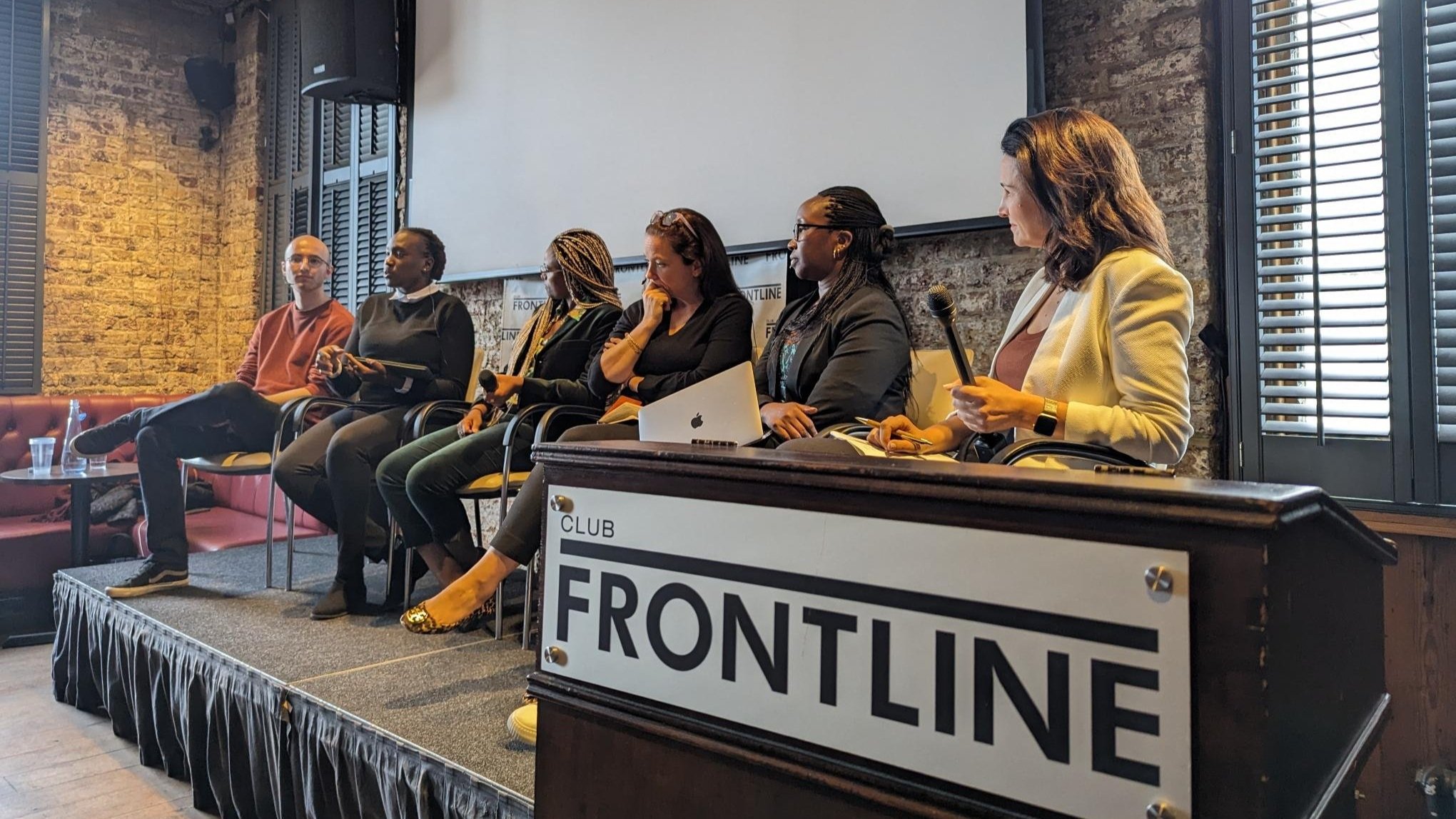
Why we urgently need a humanitarian manifesto for AI
As part of The Alan Turing Institute’s AI UK Fringe in March 2024, CDAC Network hosted an event at London’s Frontline Club to ask: ‘Do we need a humanitarian manifesto for AI?’ Catch up on the videos and key takeaways here, including a keynote from Dr Abeba Birhane.

Do we need a humanitarian manifesto for AI? Join CDAC Network at the Alan Turing Institute’s AI UK Fringe
Register to join CDAC Network at the Alan Turing Institute's AI UK Fringe to discuss whether a humanitarian manifesto for artificial intelligence is needed, and how it could be informd by conflict- and crisis-affected communities.
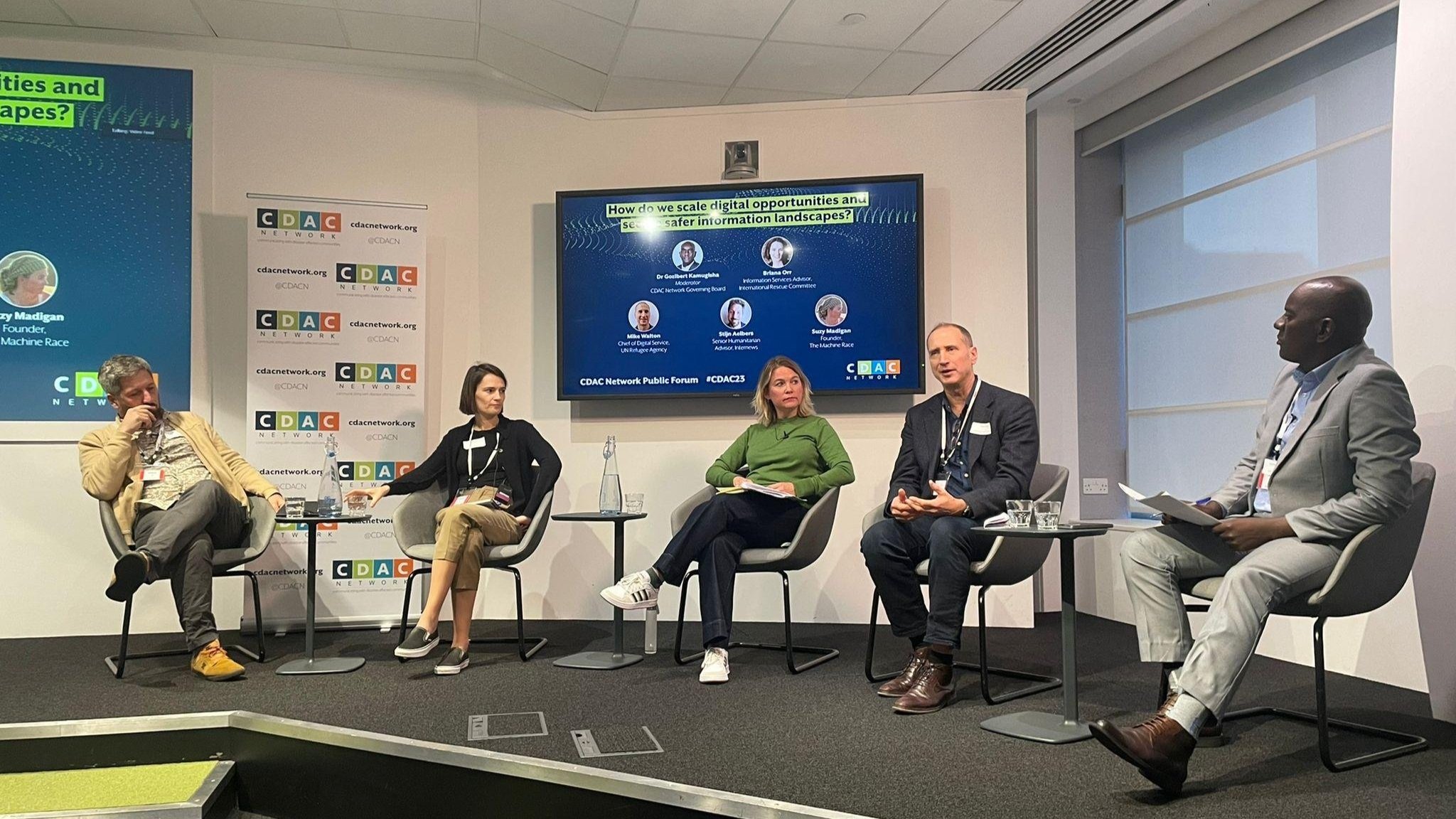
In the age of AI, how do we scale digital opportunities and secure safer information landscapes for people caught in conflict?
Seismic shifts in the digital landscape are reshaping the experience of communication in conflict across the world. What can build resilience to emerging threats to media freedom and trusted communication in conflict? And how can humanitarian principles inform sector take-up of emerging technologies such as AI?
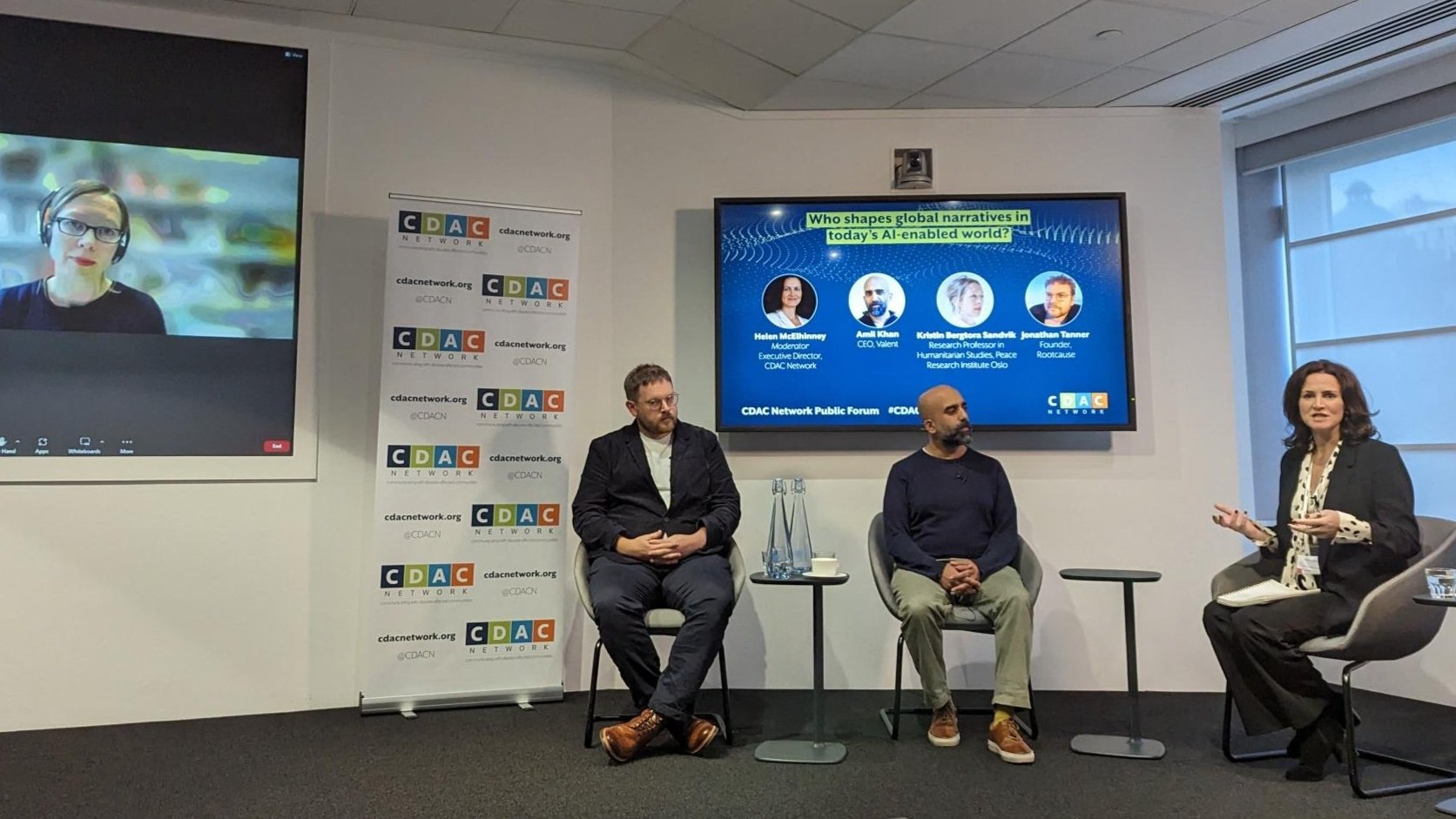
Who shapes global narratives in today’s AI-enabled world – and what do conflict-affected communities and humanitarians need to know?
Artificial intelligence is rapidly becoming a critical factor in global governance, international relations and the information environment, and it is crucial that humanitarians understand its implications in conflict contexts. Listen to our Public Forum panel with Amil Khan, Jonathan Tanner and Kristin Bergtora Sandvik.
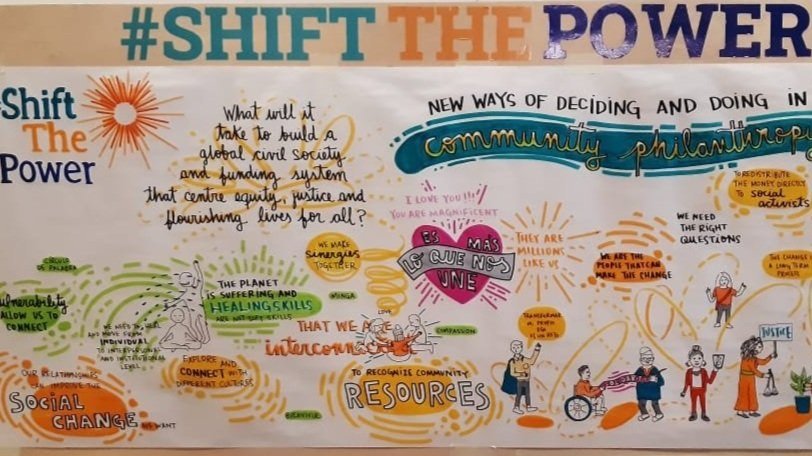
Empowering communities: insights from the #ShiftThePower Summit in Bogotá
Following the 2023 #ShiftThePower Summit in Bogotá, we reflect on inclusion, decolonisation, solidarity, technology and how we tip the balance of power in humanitarian and development decision-making to communities.
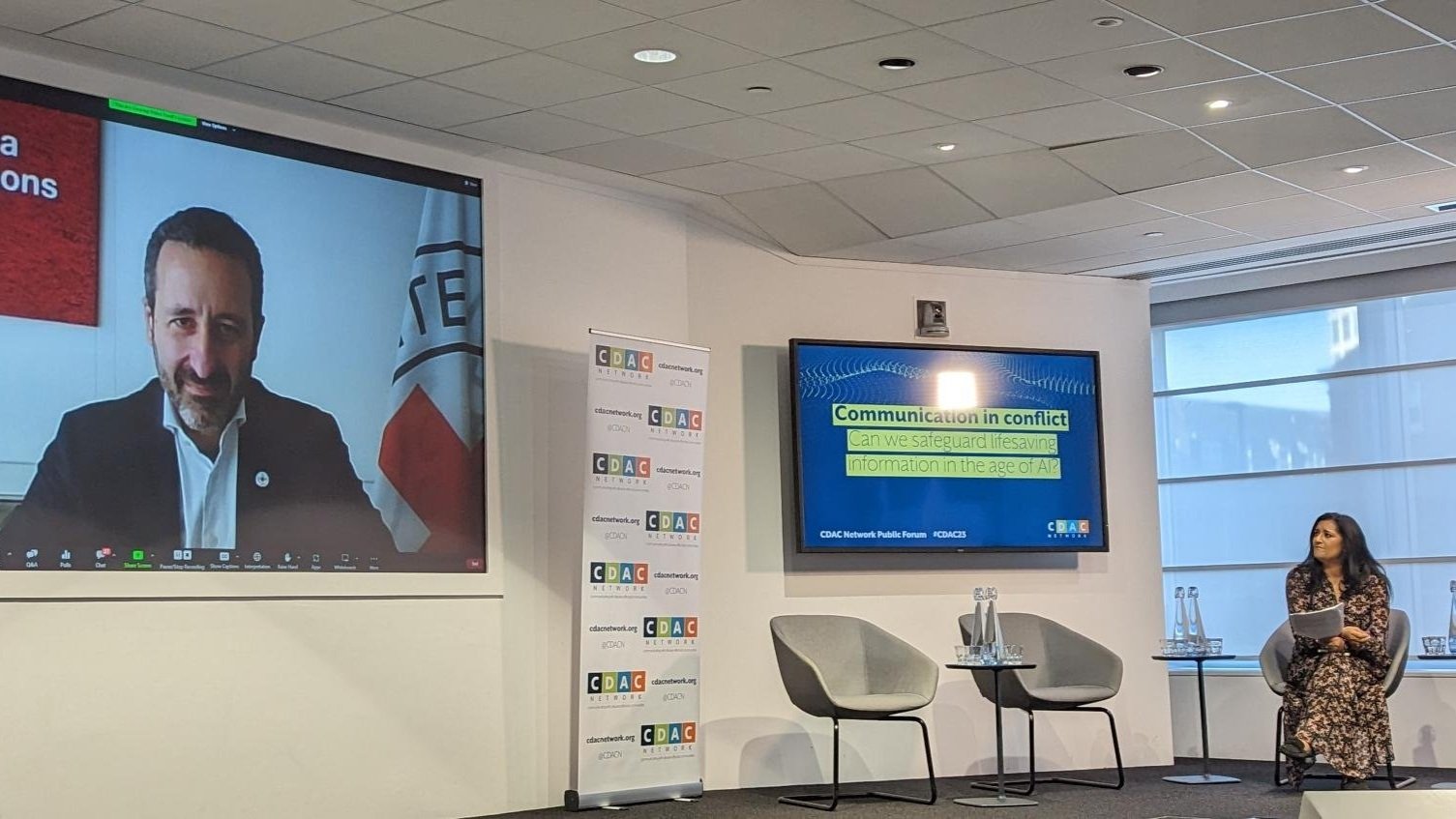
The digital frontier: Robert Mardini on the information landscape in conflict
How are shifts in the digital landscape shaping modern conflict? What role do private tech companies have to play? And how should humanitarians respond? BBC News presenter Geeta Guru-Murthy put these questions to Robert Mardini, Director-General of the ICRCR, at the opening of CDAC Network’s 2023 Public Forum. Listen to their conversation here.
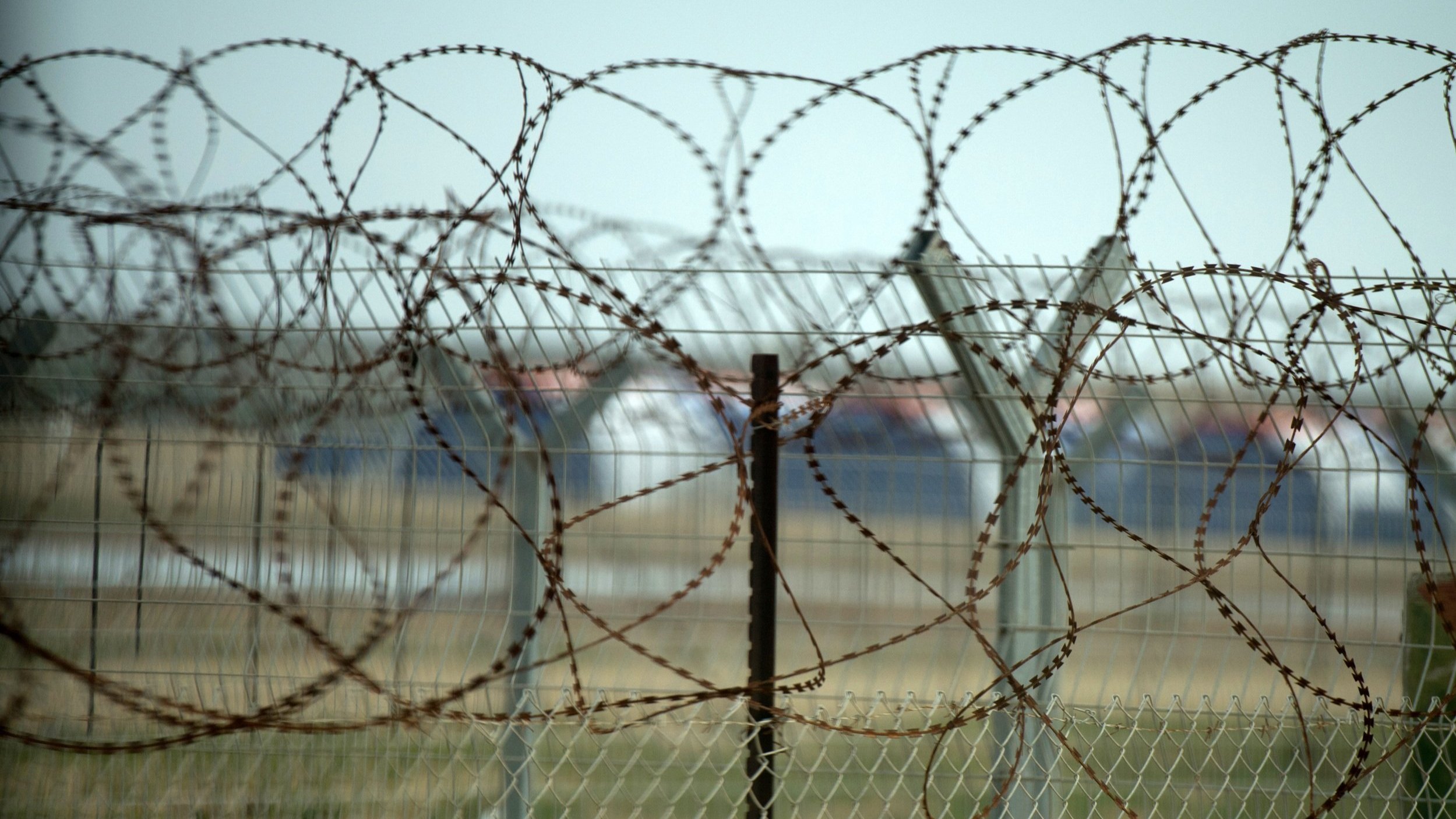
Status of communication and information in Gaza
An update on the status of communication in conflict-affected Gaza, where as of 18 October 2023 people have no accessible means of communicating digitally and lack trusted information to help them make informed decisions.
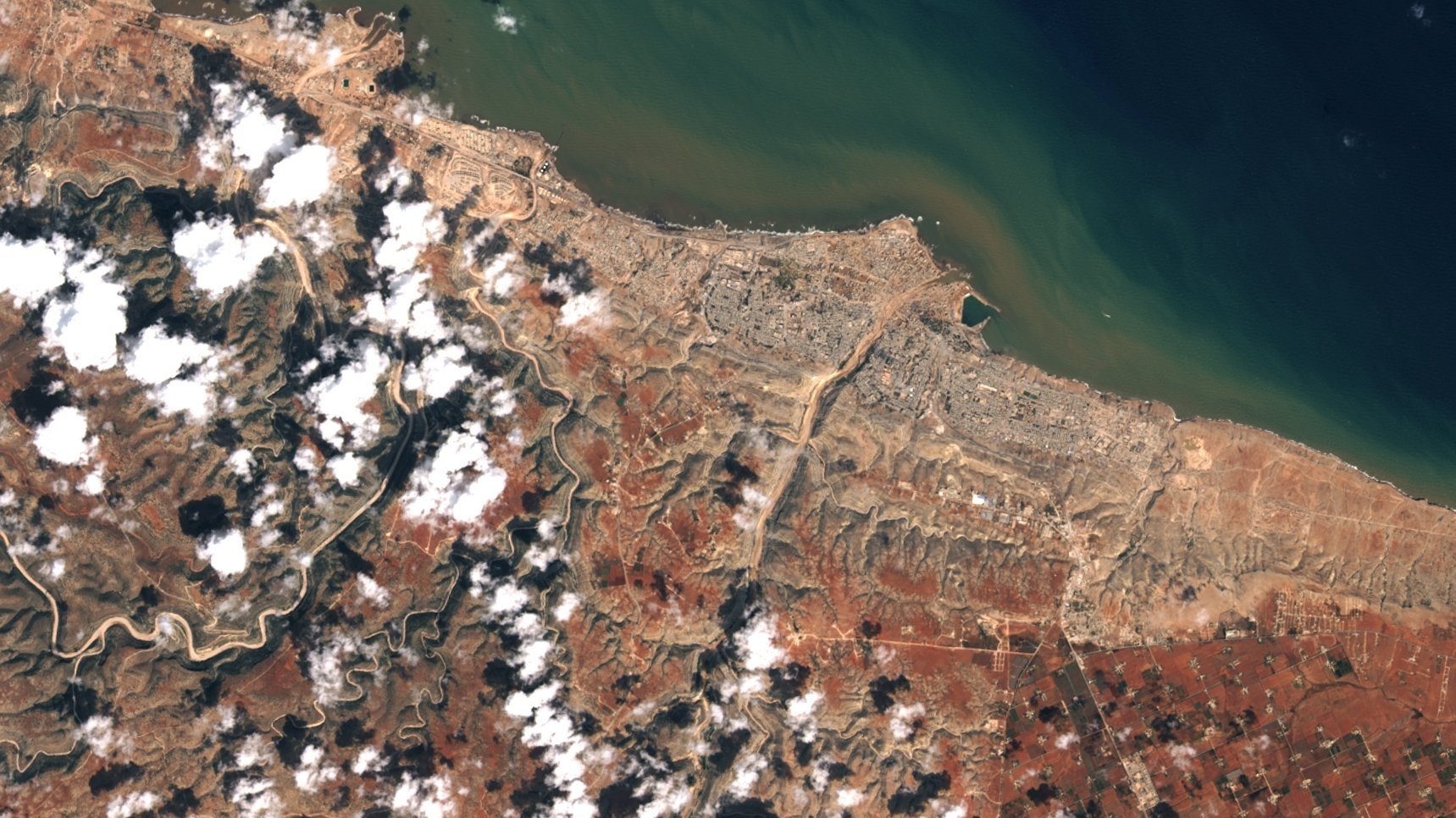
Urgent call to response leadership: advance communication and dialogue in Libya
As the international humanitarian response to the Libya floods ramps up, CDAC Network and its members urgently call for response leadership to advance coordinated communication with affected people.
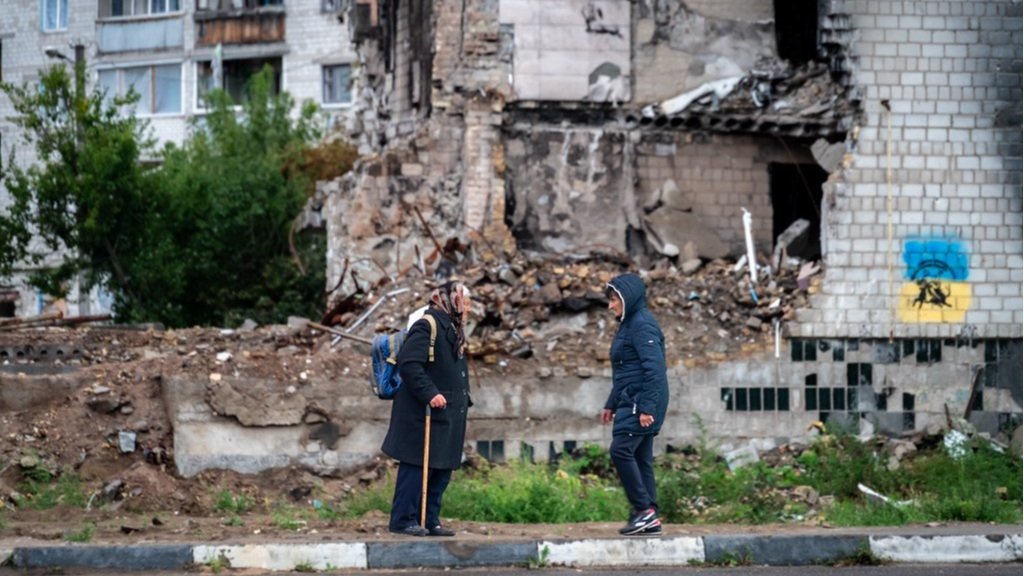
CDAC Network: one year of promoting effective system-wide communication across the Ukraine response
Reflections on a year of CDAC’s project to ensure effective system-wide communication across the Ukraine response by bridging the gap between local and global responders.
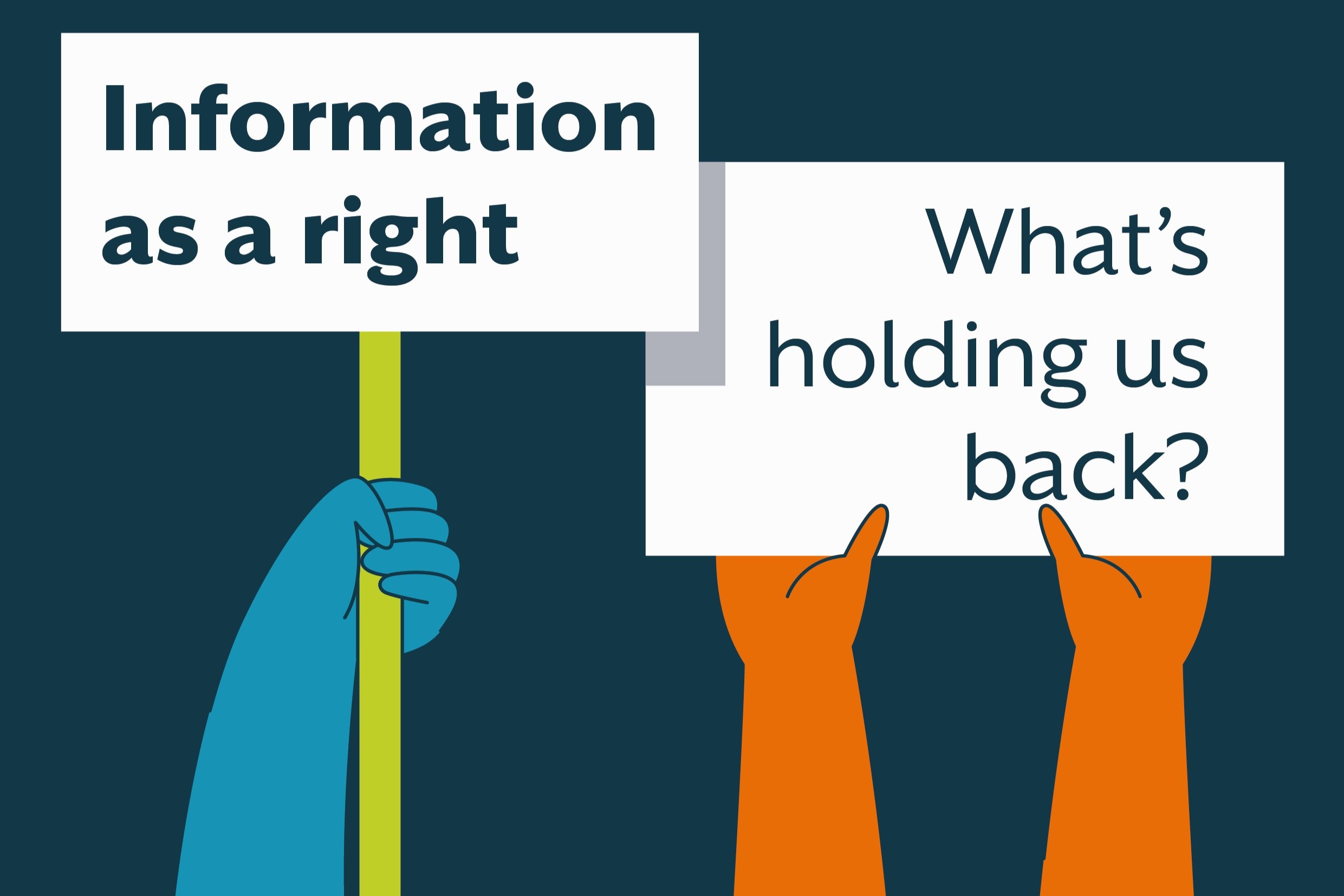
Information as a right: what’s holding us back? Key takeaways on advancing rights-based approaches to communication and participation
Why the concept of ‘information as aid’ must be underpinned by the fundamental rights to information, participation and freedom of expression.
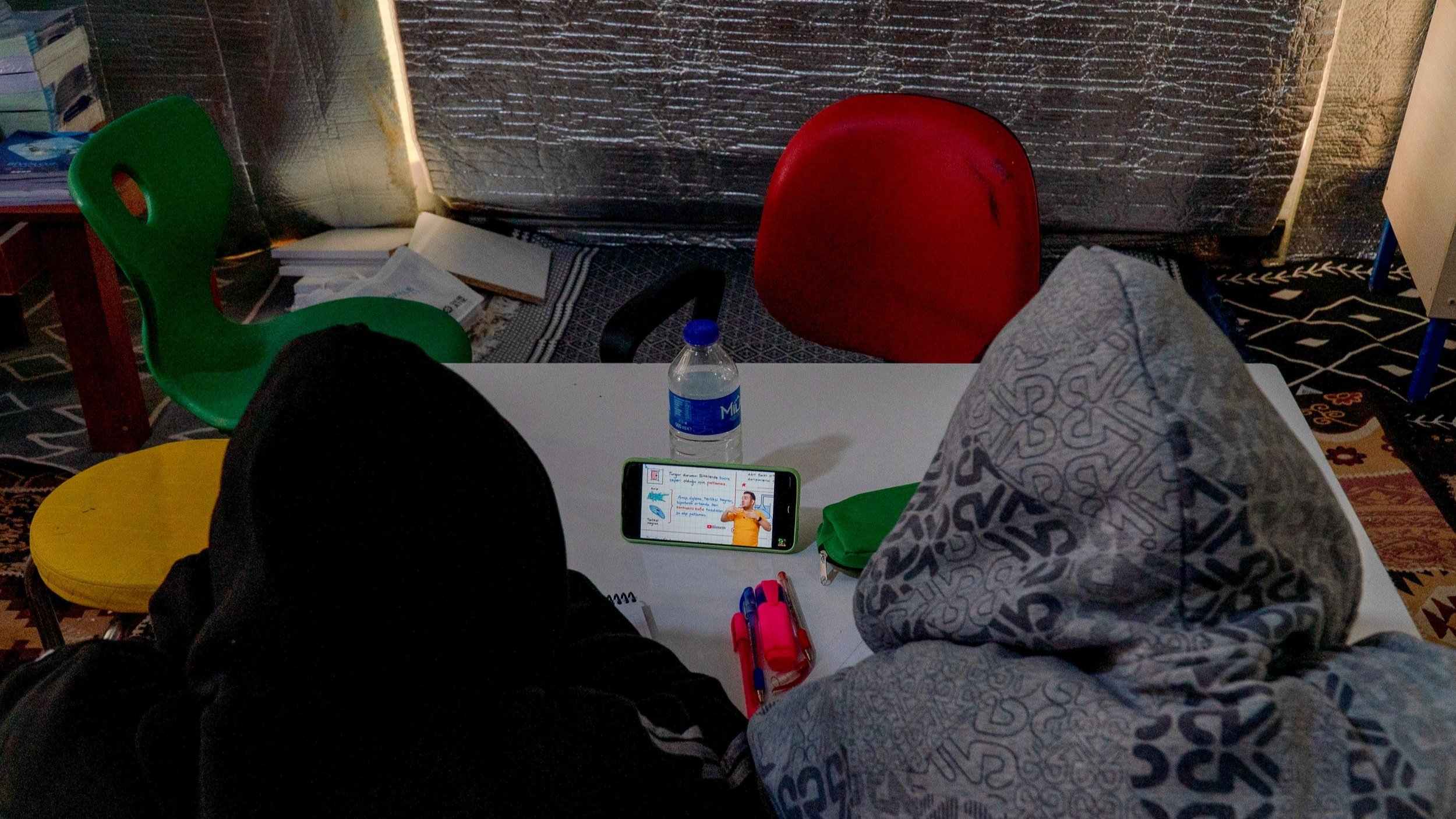
Connecting communities: navigating information gaps and community trust in post-earthquake Türkiye
Key considerations to ensure everyone has access to timely, accurate and trusted information and two-way channels of engagement.
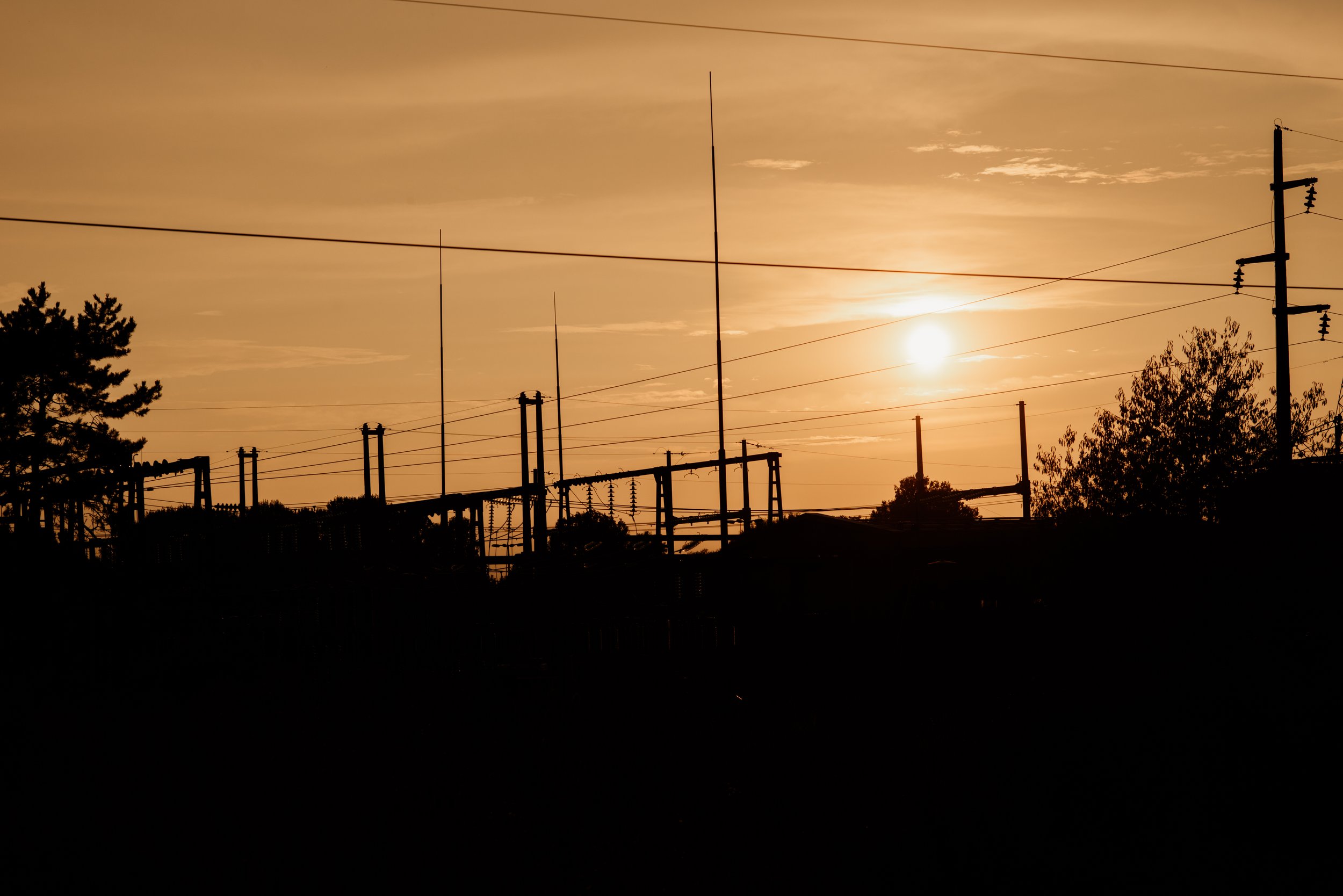
Ukraine in the dark: what to do when power cuts disrupt communication and engagement strategies
Humanitarian responders must engage with the full spectrum of communication channels that people trust and use, so that if one channel is disrupted, information can flow around the blockage.
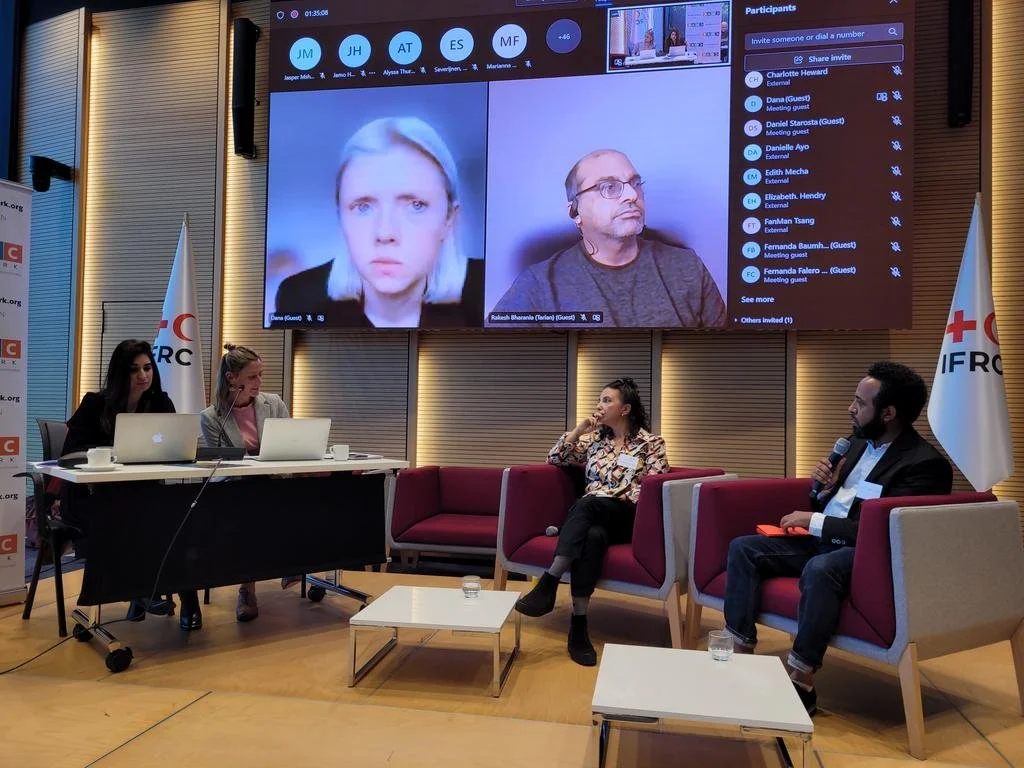
Futureproofing communication and engagement: key takeaways on collaboration in an evolving aid landscape
Key takeaways from the 2022 CDAC Network Public Forum on how diverse actors must work together to ensure that communication and engagement is fit for the future.

A call for action from CDAC Network Governing Board
The future of humanitarian collaboration and engagement with local communities requires action and risk-taking in the void between ‘us’ and ‘them’. Investing in practical and agile local solutions is essential to systems change
